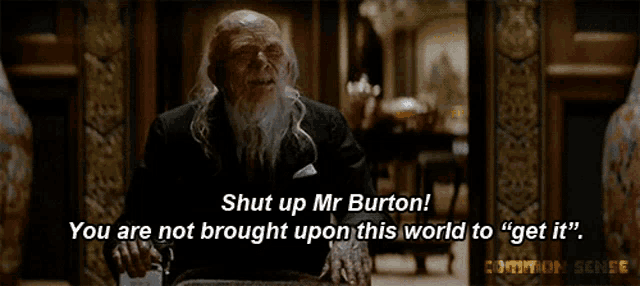Bugbears: "Make Sure the Player Gets It!"
Good narrative is not like writing a clear email
Just a quick article this time, as I’m technically on vacation at the moment.
Now, there’s been a lot of complaints about the quality of writing in games. And I’ve gone to great length to explain many of the impossible requirements of writing for games.
And I might even argue that we’re seeing some of the best writing the industry has had for a while, from subtle suggestions of Failbetter Games’ Sunless Seas and Sunless Skies games, to the deep world and characters of ZA/UM’s Disco Elysium, to the contrasting lights and darks of Sandfall Interactive’s Clair Obscur: Expedition 33, to the rich depth of progression- and context-awareness of Supergiant Games’ roguelike sagas, Hades and Hades II.
So while a lot of games are getting better, more nuanced and responsive writing than ever before, there’s still plenty of clunky stuff out there. And much of it feels like it goes back to one recurring reason. It’s a cause that no player ever sees firsthand, and it’s one of my biggest frustrations in the industry.
So let me take a moment during my vacation to rant about leads whose main goal is to ensure that the player gets it.
Soft skills and social sciences
Now, it’s a common cliché that there’s a lack of “soft” social skills and skills that colleges usually group together as “the humanities” in the game industry (and in any “nerdy” field in general). This is a lot less true today than it was when I was getting started 20 years ago, when the only people you’d find at a studio who had studied literature or history or any social science were the weirdo designers and occasional writer. But change is slow, and slowest at the top echelons of management.
To put it bluntly, the higher management levels of game development (where leaders are often the experts who came up through the “less social” era of development) and in publishing (where leaders usually got their degrees in business) tends to involve people who have little or no experience with the craft of writing. Details like lyricism, subtext, nuance, foreshadowing, and the like are largely lost on them.
Plain as the nose on your face
It’s understandable, of course. Most devs of any discipline can recognize when a 3D model doesn't look right, or an animation doesn't have the right impact, and we can certainly tell when an engine doesn't run smoothly. But a lot of management will look at a rough first draft of a story or conversation and think, "It's got all the right Proper Nouns and everyone's saying what their emotions are, so that's good, clear writing." Good writing (and good performance of that writing!) relies on things like showing a character’s emotional state rather than stating it outright, otherwise it feels unnatural and clumsy — as writers say, it’s too “on the nose”.
I often joke that this is the result of people who think that good writing is like a clear powerpoint presentation. People who think that because they can write an email, they can write a story. But it's not really a joke. A first draft that's too on the nose is exactly what this sort of management is looking for.
Because every developer has had a time when their director has said those dreaded words to them: “But will the player get it?”
How else will players get it?
I don’t know if it comes from a deep underestimation of players’ intelligence, or focus testing that went sideways with a stubborn player, or just a confusion about the difference between suggestion and guidance, but there’s a constant instinct to explain every single detail to a player lest they Not Get It.
Maybe the detail in question is how to get to the next part of a level, or the horrors of the villain’s dastardly plan, or just why your partner feels the way they do about your crazy heroics. In any case, this sort of manager wants clear, precise, and triple-redundant explanations. Possibly an unskippable Powerpoint presentation.
Because we’ve all been there for focus tests where it’s painfully clear that players never actually read words you put on screen if there’s any sort of action to be done at the same time. And that players will skip through cutscenes that fall below a certain number of explosions per minute. And your publisher’s marketing folks will warn you that any player who finds themself Not Getting It is mere moments away from turning off your game in frustration, burning their console, and posting an angry string of slurs about your studio online.
Press F to Get It
And so, a lot of games are written to be impossible not to get, and get repeatedly with extreme prejudice. And as a result, they’ve got all the subtlety of a steamroller, and all the nuance of a spiked baseball bat.
Maybe that’s good for audience engagement, at least for certain audiences — but it’s poison for good writing.







I'm reading this at an extremely appropriate time! Thanks for the good reminders.